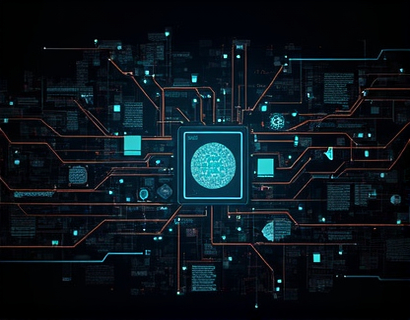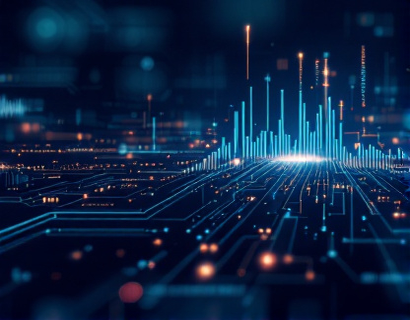Advanced Cybersecurity Solutions for High-Net-Worth Individuals, Celebrities, and Cryptocurrency Professionals
In the digital age, the protection of digital assets and personal data has become paramount, especially for high-net-worth individuals, celebrities, and professionals in the cryptocurrency sector. The rise of cryptocurrency has introduced new dimensions to cybersecurity, requiring advanced defense strategies and operational security measures. This article delves into the sophisticated cybersecurity solutions tailored for these high-risk groups, focusing on ensuring the safety and privacy of their assets and personal information.
Understanding the Threat Landscape
The cryptocurrency space is a prime target for cybercriminals due to the high value and relative anonymity of digital assets. Hackers employ a variety of sophisticated techniques, including phishing attacks, malware, ransomware, and sophisticated social engineering tactics. For high-net-worth individuals and celebrities, the risk extends beyond financial loss to reputational damage and personal safety. Understanding this threat landscape is crucial for developing effective defense mechanisms.
Tailored Cybersecurity Strategies for HNWIs and Celebrities
High-net-worth individuals and celebrities require a multi-layered approach to cybersecurity. This begins with a thorough risk assessment to identify vulnerabilities and potential attack vectors. Customized security protocols must be implemented, considering the unique circumstances and asset profiles of each client. This includes securing private keys, using hardware wallets, and implementing multi-factor authentication for all digital transactions.
For individuals with significant online presence, such as celebrities, additional measures are necessary. This involves monitoring online activities for any suspicious behavior, employing dedicated security teams, and using encrypted communication channels. The goal is to create a robust barrier against unauthorized access and data breaches.
Cryptocurrency-Specific Security Measures
Cryptocurrency security requires specialized knowledge and tools. One of the primary concerns is the secure storage of private keys. Hardware wallets, which store keys offline, offer a higher level of security compared to software wallets. Additionally, using cold storage solutions for long-term asset holding can significantly reduce the risk of theft.
Transaction monitoring is another critical aspect. Advanced monitoring tools can detect unusual activity and alert users in real-time. Implementing cold signing techniques, where transactions are signed offline before being transmitted, adds an extra layer of security. Regularly updating software and firmware to patch vulnerabilities is also essential.
Operational Security for Cryptocurrency Professionals
Professionals in the cryptocurrency sector, including developers, traders, and exchange operators, face unique operational security challenges. These individuals often handle large amounts of cryptocurrency and sensitive information, making them attractive targets for cybercriminals. Operational security measures must be stringent and comprehensive.
Employing secure coding practices and conducting regular security audits can prevent vulnerabilities in software and applications. Using virtual private networks (VPNs) and secure communication channels ensures that data transmitted over the internet remains encrypted and private. Access controls and least privilege principles should be strictly enforced to minimize the risk of insider threats.
Physical security is also a critical component. Secure data centers and office environments with biometric access controls and surveillance systems can deter physical breaches. Regular security training and awareness programs for employees help in identifying and mitigating potential threats.
Advanced Defense Strategies
To stay ahead of sophisticated cyber threats, advanced defense strategies are necessary. One such strategy is the implementation of a defense-in-depth approach, which involves multiple layers of security controls to protect assets. This includes network security, endpoint protection, and application security, each designed to complement the others.
Artificial intelligence and machine learning play a pivotal role in modern cybersecurity. These technologies can analyze vast amounts of data to identify patterns and anomalies indicative of cyber attacks. AI-driven threat detection systems can respond to threats in real-time, reducing the window of opportunity for attackers.
Another advanced strategy is the use of deception technology, which involves setting up decoy systems to lure and detect attackers. By creating a false sense of security, these decoys can provide valuable insights into attacker behavior and tactics, helping to strengthen overall security measures.
Privacy Solutions for Sensitive Information
Protecting personal data is as crucial as safeguarding financial assets. For high-net-worth individuals and celebrities, privacy solutions must be robust and multi-faceted. Encryption remains a fundamental tool, ensuring that data is unreadable without the proper decryption keys. End-to-end encryption for communications and data storage is essential.
Privacy-focused browsers and search engines can help minimize online tracking and data collection. Using virtual private networks (VPNs) and secure proxy services adds an additional layer of anonymity. Regularly reviewing and updating privacy settings on social media and other online platforms can prevent unauthorized access to personal information.
Blockchain-based privacy solutions, such as zero-knowledge proofs, offer new ways to verify transactions without revealing sensitive details. These technologies can be particularly useful for cryptocurrency transactions, ensuring privacy while maintaining the integrity of the blockchain.
Incident Response and Recovery
Despite the best preventive measures, cyber incidents can still occur. Having a well-defined incident response plan is crucial for minimizing damage and recovering quickly. This plan should outline clear steps for identifying, containing, eradicating, and recovering from security breaches.
Regular backups of critical data are essential for rapid recovery in case of ransomware attacks or data loss. Testing these backups regularly ensures their reliability. Post-incident analysis and reporting help in identifying weaknesses and improving security measures going forward.
Engaging with cybersecurity experts and conducting regular drills can enhance the effectiveness of the incident response team. Continuous learning and adaptation are key to staying ahead of evolving threats.
Conclusion
The landscape of cybersecurity for high-net-worth individuals, celebrities, and cryptocurrency professionals is complex and ever-evolving. By adopting a comprehensive and tailored approach to security, these groups can significantly reduce the risk of cyber threats. Advanced defense strategies, combined with operational security measures and privacy solutions, form a robust framework for protecting digital assets and personal data. In an increasingly digital world, staying vigilant and proactive is not just a choice but a necessity.










































